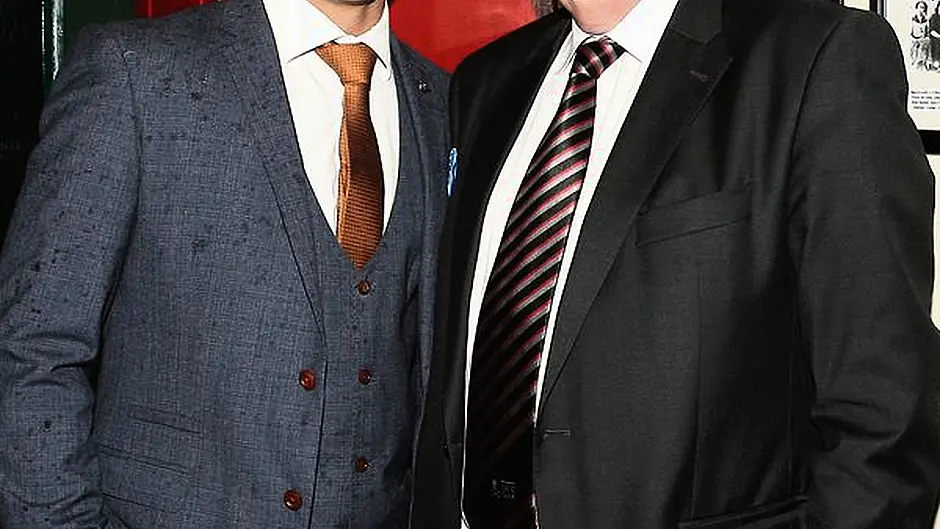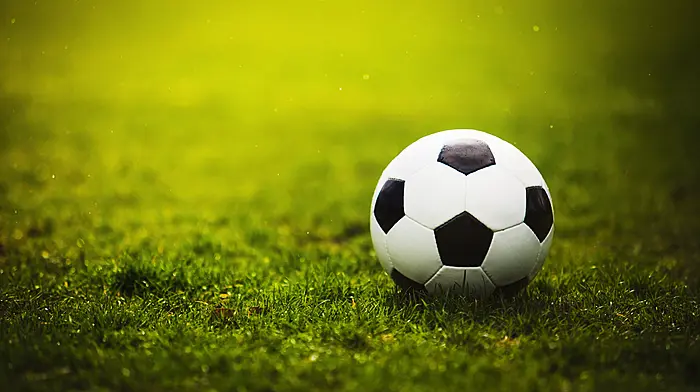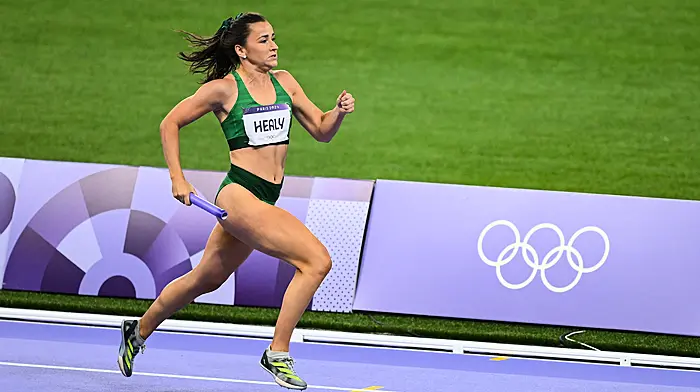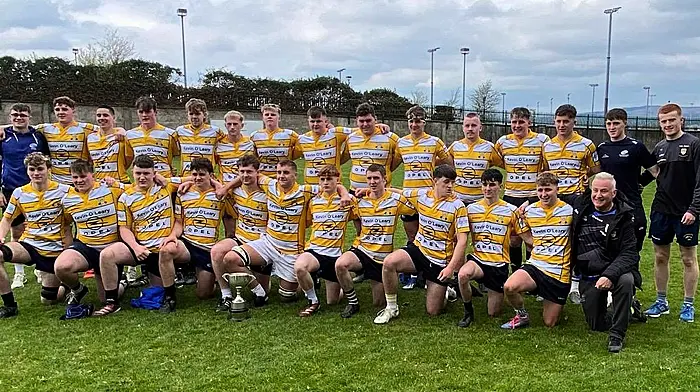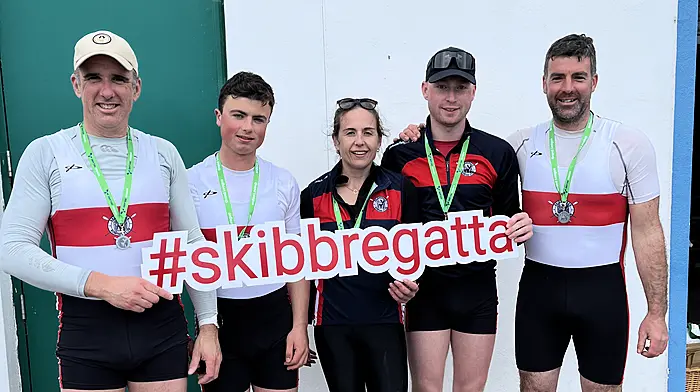Tom Lyons talks all things GAA with Dr Con Murphy, who is starting his 42nd year on the sideline with Cork
Tom Lyons talks all things GAA with Dr Con Murphy, who is starting his 42nd year on the sideline with Cork
WHEN one meets, and interviews, a true Gael like Dr Con Murphy it’s hard to decide whether to dwell on the past, present or future.
No matter what era you pick, men like Dr Con are mines of information, nuggets of GAA gold littering the floor at their feet. These men, and women, appreciate and honour their GAA past, live positively in the present and think deeply of what the future holds. Every word is a story and every story is a gem.
We met Dr Con, medical officer to the Cork senior hurling and football teams for the past 40 years, at the Clonakilty GAA dinner on Friday night week last, a wicked night weather-wise, the guest of honour, whose only worry was that his speech wouldn’t do justice to such an historic club. He needn’t have worried. His GAA pedigree alone was enough to guarantee a huge welcome on the night.
‘My father, Weesh, was Bere Island born and bred and many wonder about the name,’ Dr Con said.
‘He was christened Patrick Aloysius but nobody could pronounce Aloysius properly so my aunt called him Weesh. It stuck for good.
‘Football was a religion in Beara in the 1930s and 1940s and he won an All-Ireland medal with Cork footballers in 1945, their first title since 1911. He would row from the island, cycle to Bantry, get a spin to Cork and then the train to Dublin for the big games.
‘He was a vet by trade and moved to Cork in the early 1950s, played with the Barr’s for a year and then a group of them reorganised the old Lees Club. They were all outsiders, many inter-county players, none from the city itself. They had no headquarters, no pitch but won the county in 1955.
‘I suppose my first official GAA function was in 1956 when I was the Cork mascot, ten years old, for the Cork v Galway All-Ireland football final. Lees had an underage club for a while but then the club disappeared in 1967. I was in UCC at the time, so I had no club to return to and stayed with UCC. I never left it since. I was never much of a player, just filled in when needed.’
‘Weesh, who was chairman of the Munster Council at the time, died suddenly in Dublin on the eve of the All-Ireland hurling final between Limerick and Kilkenny in 1973 and there hangs a tale too.
‘Back in 1945,’ explains Dr Con, ‘my father missed the All-Ireland football semi-final against Galway because his brother, Dr Con, after whom I was named and who lived in South Africa, died and Weesh wouldn’t play. He was back for the final when Cork beat Cavan.
‘Then in 1973, Weesh died and Cork footballers won the All-Ireland football for the first time since 1945. In 1987, when Cork footballers reached their next final, I got two tickets for my other uncle, Brendan, who was a sub in 1945 but never received a medal. I was almost afraid of a Cork win but they lost a game they should have won. Afterwards I met Brendan and all he said was, “Looking at that I think I’ll live to be 110.”’
Dr Con is now beginning his 42nd year on the sideline as medical advisor with the Cork hurlers and footballers, an amazing record of service, for which he is proud to say he never received or looked for a penny reward. Like all great careers it started almost by accident.
‘My father was a great man for the dogs and so I had a great interest in the greyhounds as well,’ he explained.
‘In 1976 I was working in Tralee and I was at the Cork dog track with Jimmy Barry-Murphy, another great dog man, and we bumped into Denis Conroy. The Cork hurlers were playing the following day and they had no doctor to go with them, so he asked me would I travel. That was the beginning.
‘Then Billy Morgan found out and said I should be with the football team as I was a football man first and foremost, so I ended up with both. Of course it’s so different these days. I have two assistants now, so I never need to run on the pitch and my own son has now started with Cork hurlers as well.’
As regards the medical people running on to the pitch, Dr Con had a very interesting observation to make.
‘In the old days I rarely had to venture on to the pitch, there never seemed any need to,’ he pointed out.
‘I was into my tenth match before I was called on by a referee and I remember when Cork won the double in 1990, I never once went onto the pitch in Croke Park. Now teams are actually using medical breaks as tactics to stop games or something. It’s all changed.’
What else has he found changed in the past 40 years of involvement with Cork’s inter-county teams?
‘It’s a whole new world now in Gaelic games,’ said Dr Con, a little ruefully.
‘We have more done already this season in training than we did in the whole season of 1976, when we won the hurling. Back then it was a few weeks training for the league, then a break and a couple of weeks to the championship.
‘The sacrifice players have to make now at inter-county level is unreal, far too much. The idea of playing just for enjoyment is gone, now it’s all about winning and it’s all far too serious. It’s hard to see where it will all end up.
‘I can’t see the game becoming professional because that would destroy the whole ethos of the association.’
And finally, what changes would Dr Con like to see in the games given all his experience from the sideline?
‘I was instrumental in introducing the blood sub,’ said Dr Con, ‘but, unfortunately, it is now being abused by teams. There should be a time limit, say ten minutes, for a blood sub, after that they should be permanent substitutes.
‘Secondly, I think drastic action needs to be taken about the amount of people allowed on the sideline in both club and county games. Most of the trouble in games is actually coming from the sideline and we should follow the rugby model. It needs to be controlled and we all know people who dominate games from the sideline.
‘And no, I don’t agree with a time clock like ladies football. We tried it in the Sigerson and I saw how it could be abused at the end of a game. I know there’s a lot of pressure on a referee at the end of a game as regards time but I don’t think the clock is the answer.’
We left Dr Con knowing we had only scratched the surface of his vast experience in Gaelic games and wondering why people like him are rarely listened to when it comes to making changes in the association. We wish him all the best in his 42nd year on sideline duty and hope he adds to his memorable moments in 2018.

